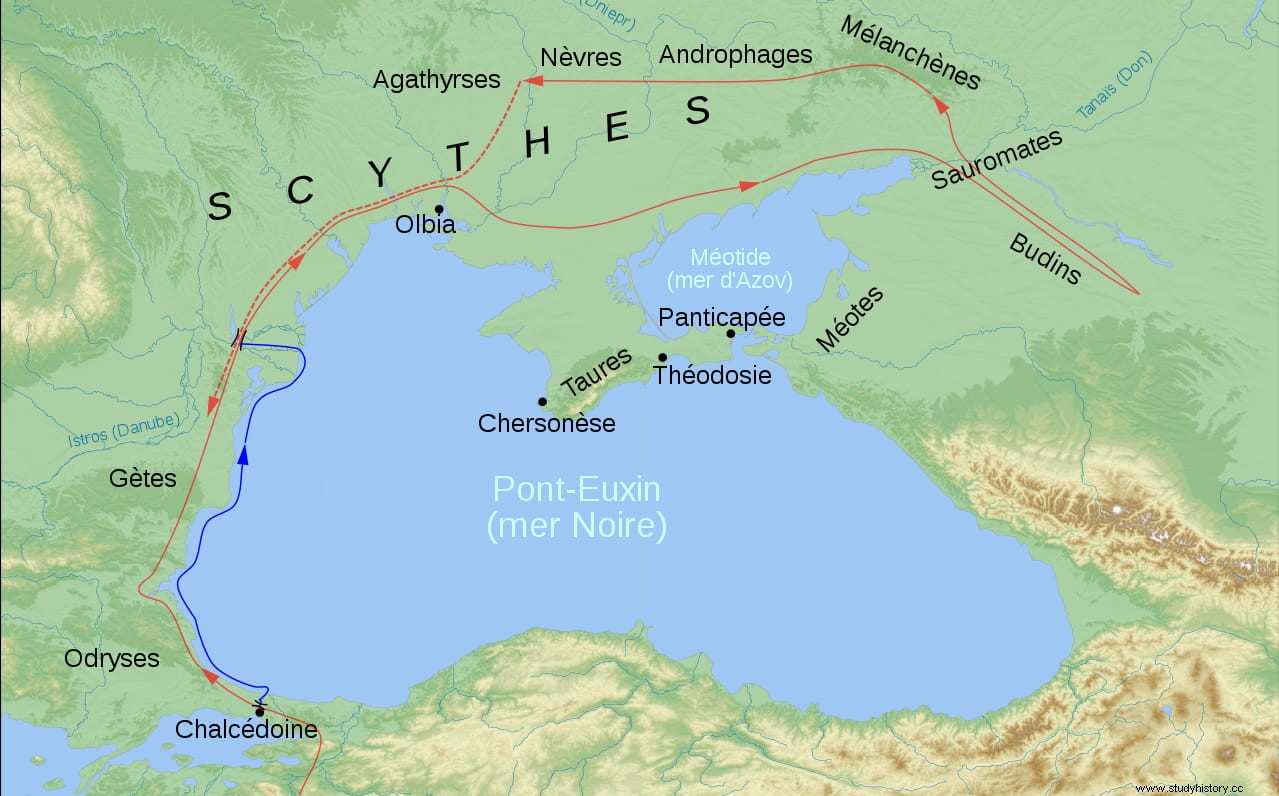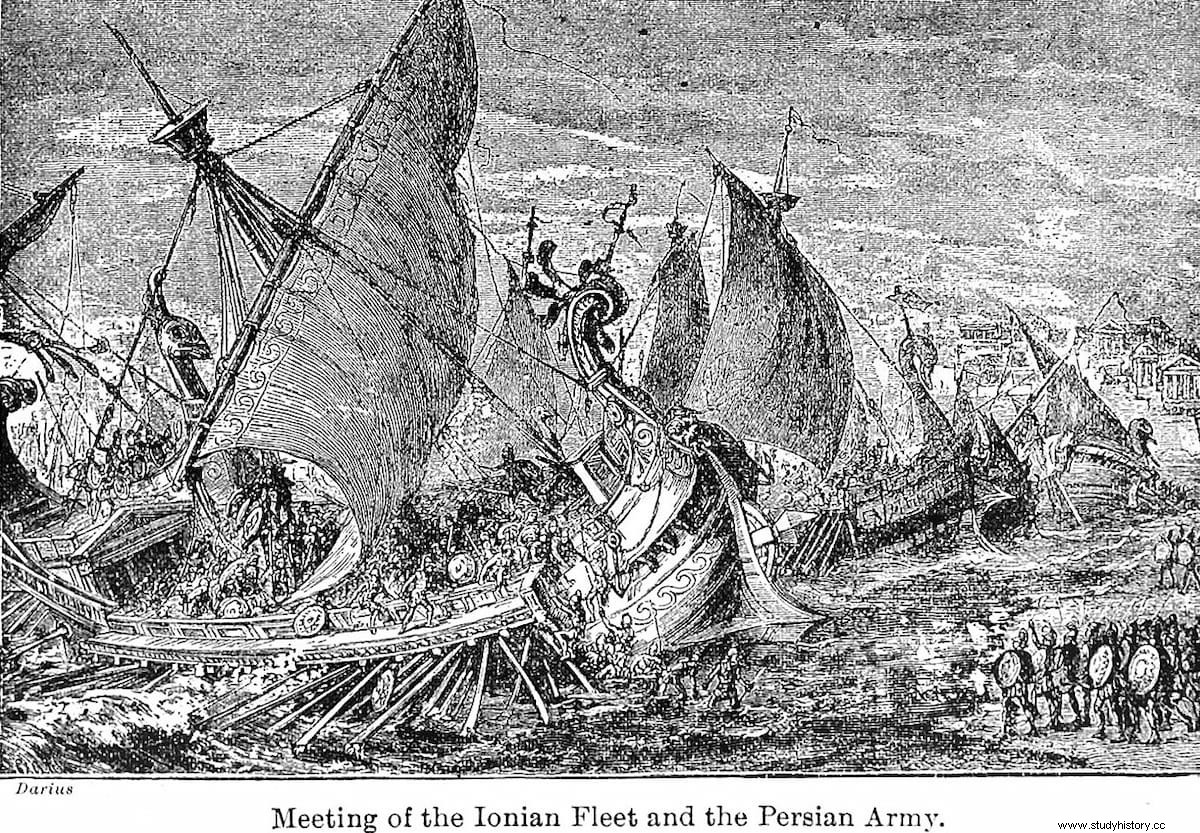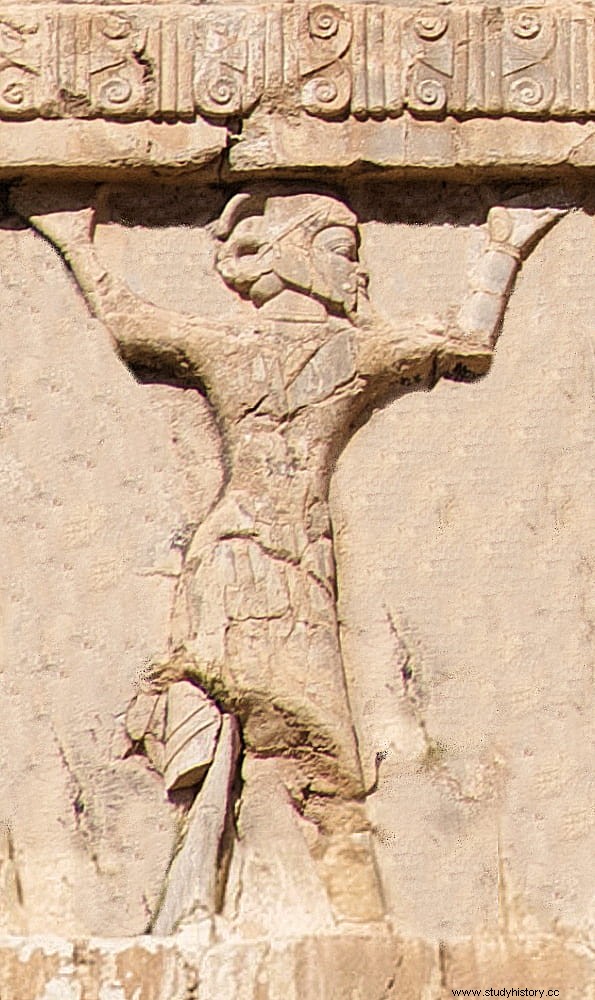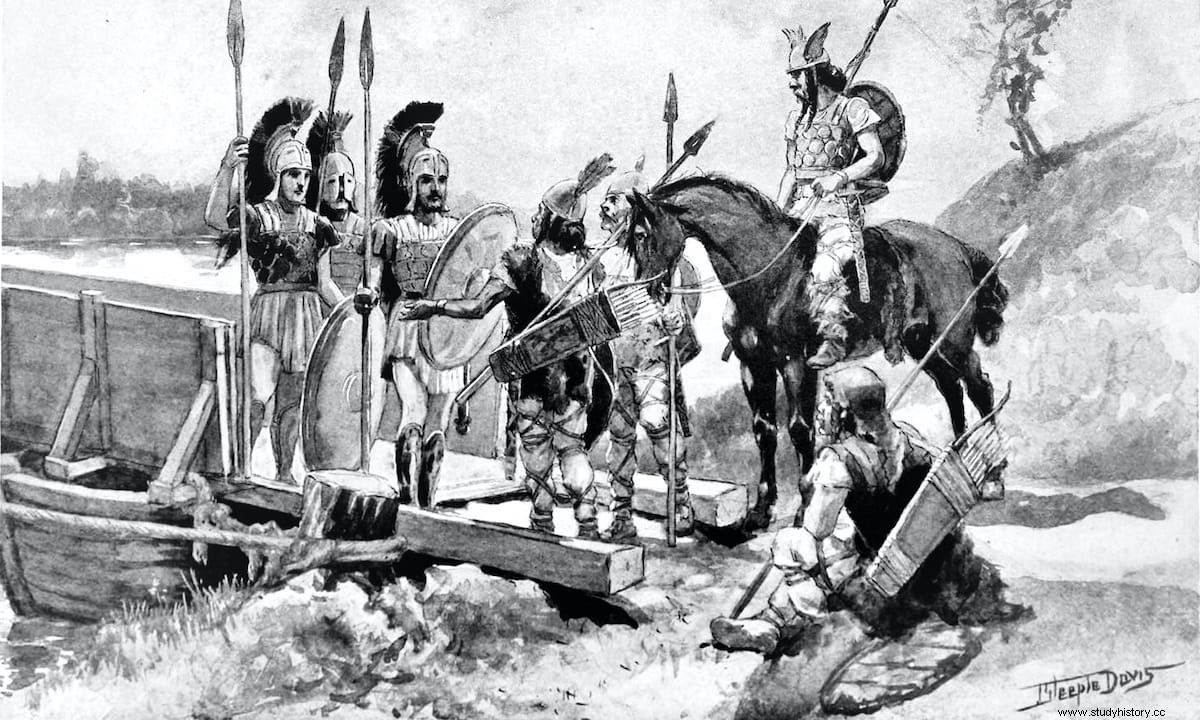It is a very popular saying that history repeats itself, and another that no one stumbles twice on the same stone. To them should be added that you learn from history , and then it is quite unusual that up to three rulers from three different eras could have made the same mistake, seemingly learning nothing at all from their predecessors.
We are referring, as the reader will have already deduced, to the invasion of the territory of today's Russia on different occasions and with the same result. Not only that, but it could be said that the causes of the failure were the same:the use of the scorched earth tactic, and the winter.
We are not going to talk about the Napoleonic attempt in 1812 or the German attempt during the Second World War, which we have already written about previously, but about the first of all, that of the Persian king Darius I in the year 513 B.C., the one who should have served (and did not serve) as a lesson to those who came later.

The difference is that Dario did not invade Russia, because it did not yet exist, although he did invade territory that today is part of that country. His campaign was directed against the Scythians, a group of (Iranian-speaking) peoples who lived in the south of present-day Ukraine and Russia, between the shores of the Black Sea and the Danube and Don rivers.
The reason for the Achaemenid decision to go against the Scythians is that they had invaded Media (southwest of the Caspian Sea) a few years earlier, constantly threatening the Persian empire and its trade with the Black Sea. Despite warnings to the contrary, Dario began organizing the campaign.
Darius crossed the Bosporus with his army using a bridge of boats that the engineer Mandrocles of Samos had designed for him, conquering all the lands up to the Danube. Then he crossed this river and entered the Scythian territory with the intention of giving battle. But the Scythians had a very different idea of fighting.

Avoiding direct confrontation, aware of the power of the Achaemenid army, they retreated into the East, while burning all the pastures in their path, rendering the water wells useless, and trying not to leave anything that could serve as food.
Darius chased the Scythians, but he couldn't stop them from fighting. Also, being an essentially nomadic people, they had no permanent cities or settlements, and Dario was unable to find supplies or shelter for his troops. But maybe that was something he already knew.

As the Scythians continued to flee to the East and refused to give battle, Darius decided to send a letter to their king Idantirsus, telling him that if he would not fight he would do well to surrender and submit to his authority. While he waited for the answer he began the construction of a series of fortresses, which Herodotus claims were still standing in his time.
Idantirsus' reply was that unless the Persians found the tombs of the ancestors of the Scythians and plundered them, they were not going to fight, as they had no land and nothing to lose.
Abandoning the construction of the fortresses, and after pursuing the Scythians for another month, Darius's army began to suffer the consequences of fatigue, hunger and disease. Winter had already come, so the king ordered the march to stop when it reached the banks of the Volga River and turn back to Thrace.

The Scythians, who saw the maneuver, went ahead of him and sent messengers to the Greeks who guarded the bridge of Darius over the Danube (the Istra for the Greeks in ancient times), to convince them to destroy it and thus cut off the Persian retreat. Although at first the Greeks assured the Scythians that they would destroy the bridge, later they did not agree among themselves, and finally Darius was able to cross with his army.
However Darius left part of his army in Europe under the command of his most important general, Megabazus, in order to pacify Thrace and protect his retreat. He never again attempted to subdue the Scythians or conquer their territory.
Even so, in the inscriptions of the tomb of Darius in Naqsh-e Rostam the Scythians on the other side of the sea are mentioned among the peoples conquered by him. .
